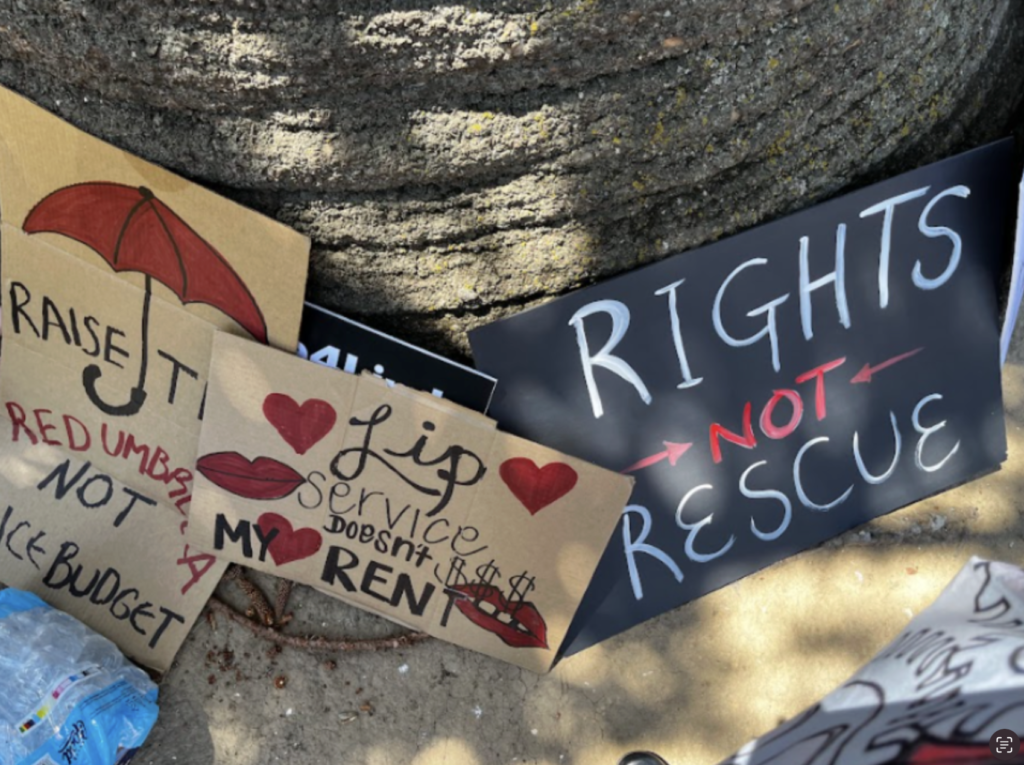A new state law and a recent Supreme Court decision are creating a potential for racial profiling and constitutional rights violations, in particular at upcoming major sporting events, advocates for sex worker are saying.
Some lawmakers and advocates are raising concerns about the potential for widespread detentions—and deportations—under this new law’s landscape.
In January, AB 379 will take effect, reinstating a repealed law that criminalizes “loitering with intent to purchase commercial sex.” Governor Gavin Newsom, signed the bill, saying it will help protect victims of human trafficking.
However, critics are its unclear language will enable law enforcement to detain individuals based on the subjective suspicion of having an “intent to purchase a commercial sex act.

In fact, previous “loitering” laws were so abused that as recently as 2022, the very same language was removed from the criminal code. Now it’s back.
Maxine Doogan, of the Erotic Service Providers Legal, Education and Research Project, told us this provision effectively disregards constitutional protections, particularly those who are guaranteed by the Fourth Amendment against unreasonable searches and seizures.
The concerns surrounding AB 378 are compounded by a recent US Supreme Court ruling, which, gives Immigration and Customs Enforcement a “green light” for racial profiling.
When this concept of racial profiling and targeting people of color is combined with the subjective and vague language of AB 379, it creates an extremely dangerous environment, making people of color easily targeted.
Advocates fear the “loitering with intent” provision will be disproportionately targeted at people of color, especially during the large-scale sporting events such as the Super Bowl and World Cup. It could also be used to target “legal sex businesses like strip clubs, commercial dungeons, and private work spaces, overall targeting sex workers,” said Doogan.
California is set to host the Super Bowl at Levi’s Stadium in February, 2026, and the 2028 Olympic Games. The ESPLERP is anticipating that the long-debunked claim that these events will create a surge in human trafficking will be used as a pretext for increased law enforcement in the surrounding areas.
Immigrants who are just in the vicinity, sex workers and others, could be caught up, arrested, and face deportation.
Doogan notes that “though this bill uses language to protect victims of human trafficking, it may facilitate the dangers of detention or deportation of people, another form of human trafficking itself.”
A recent study by a sociologist at George Washington University concludes that laws against sex work are more likely to lead to increased human trafficking than decriminalization or legalization.
Advocacy groups are planning to seek a legal injunction against the “loitering with intent” provision of AB 379 before February.





